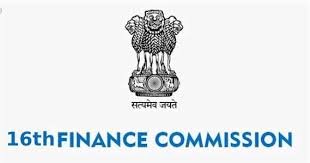The 16th Finance Commission of India was constituted in November 2019 to review the existing framework of fiscal devolution and recommend a new framework for the period 2020-25. The Commission submitted its report to the President of India on November 1, 2020. The Commission’s recommendations mark a significant shift in India’s fiscal federalism, moving towards a more equitable and performance-based sharing of tax revenues between the central and state governments.
The Finance Commission (FC) is a constitutional body that recommends the formula for sharing revenues between the Centre and the States in India. The 16th FC, due to be constituted in November 2023, will have to deal with the challenges and opportunities arising from the implementation of the Goods and Services Tax (GST) in 2017.
- The GST has changed the fiscal landscape of India by introducing a system of concurrency of indirect taxes, where every transaction attracts central as well as state GST.
- The GST has also shifted the tax base from the origin to the destination of goods and services, benefiting the poorer and consuming states at the expense of the richer and producing ones.
- The 16th FC will have to review the tax-sharing principles and the distributional criteria in light of the new fiscal federalism in India.
***
Challenges for the 16th FC
The 16th FC will face several challenges in designing a fair and efficient fiscal transfer system for India. Some of these are:
Balancing the vertical and horizontal equity
The vertical equity refers to the share of central taxes to be given to the states, while the horizontal equity refers to the allocation of that share among the states. The 16th FC will have to balance the competing demands of the Centre and the states, as well as the diverse needs and capacities of the states.
Addressing the revenue deficit grants
The revenue deficit grants are given to the states that are unable to provide a minimum level of public services with their own resources. The 16th FC will have to determine how much of the states’ deficit is due to their fiscal incapacity and how much is due to their fiscal irresponsibility. It will also have to devise incentives for the states to improve their fiscal performance and reduce their dependence on grants.
Incorporating the GST compensation
The GST compensation is a mechanism to protect the states from any revenue loss due to the transition to the GST regime. The Centre has committed to compensate the states for any shortfall in their GST revenue for five years, ending in 2022. The 16th FC will have to decide whether to extend the compensation period, and if so, how to finance it.
Enhancing the local fiscal autonomy
The local governments, such as the panchayats and the municipalities, are responsible for delivering public goods and services at the grassroots level. The 16th FC will have to recommend measures to augment the resources of the local governments and to ensure their accountability and transparency.
Opportunities for the 16th FC
The 16th FC will also have some opportunities to reshape the fiscal federalism in India. Some of these are:
Leveraging the GST Council
The GST Council is a constitutional body that governs the GST regime in India. It consists of the Union Finance Minister and the State Finance Ministers, and decides on the rates, exemptions, and administration of the GST. The GST Council is an example of cooperative federalism, where the Centre and the states work together to achieve a common goal. The 16th FC can leverage the GST Council to foster a dialogue and consensus on the fiscal issues among the stakeholders.
Promoting the fiscal innovation
The GST regime has opened up new avenues for fiscal innovation in India. The states can experiment with different tax policies and expenditure priorities within the GST framework, and learn from each other’s best practices. The 16th FC can encourage the states to adopt fiscal innovation and to share their experiences and outcomes with the Centre and other states.
Strengthening the fiscal sustainability
The GST regime has also created some fiscal risks for India. The GST revenue may be volatile and uncertain, depending on the economic conditions and the compliance levels. The GST compensation may also create a fiscal burden for the Centre in the long run. The 16th FC can recommend measures to strengthen the fiscal sustainability of both the Centre and the states, such as setting fiscal rules, creating fiscal buffers, and enhancing the fiscal transparency.
Key Recommendations of 16th Finance Commission
The Commission’s recommendations mark a significant shift in India’s fiscal federalism, moving towards a more equitable and performance-based sharing of tax revenues between the central and state governments.
- Horizontal devolution: The Commission recommended increasing the share of states in net tax revenue from 42% to 45%. This increase is intended to provide states with more resources to fund their own development expenditures.
- Vertical devolution: The Commission recommended a new methodology for distributing central taxes to states based on a performance-based criterion. Under this criterion, states will receive additional funds based on their performance in areas such as fiscal discipline, health, education, and infrastructure development.
- Grants for local bodies: The Commission recommended increasing the share of local bodies in the total devolution to 2.5%. This increase is intended to provide local bodies with more resources to improve urban infrastructure and services.
- Fiscal consolidation: The Commission recommended a number of measures to promote fiscal consolidation, including a new framework for debt management and a review of tax exemptions.
Significance of the 16th Finance Commission’s Recommendations
The 16th Finance Commission’s recommendations are significant for a number of reasons:
- They represent a significant shift towards a more equitable sharing of tax revenues between the central and state governments.
- They introduce a performance-based criterion for distributing central taxes to states, which will incentivize states to improve their governance and administration.
- They increase the share of local bodies in the total devolution, which will help to improve urban infrastructure and services.
- They include a number of measures to promote fiscal consolidation, which will help to reduce India’s fiscal deficit and debt burden.
Implementation of the 16th Finance Commission’s Recommendations
The implementation of the 16th Finance Commission’s recommendations is ongoing. The central government has already implemented some of the recommendations, such as increasing the share of states in net tax revenue. However, the implementation of other recommendations, such as the performance-based criterion for distributing central taxes to states, is still in progress.
(India CSR)























